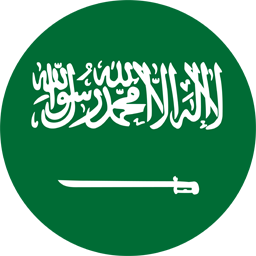













Patient scheduling is an integral component of the daily operations of healthcare practitioners across various settings, including hospitals, family practices, and large clinics. Patients' appointments with surgeons, optometrists, ophthalmologists, dentists, psychiatrists, and other specialists and general practitioners must be coordinated by medical office personnel. The complexity of scheduling increases significantly when a physician maintains multiple clinics and commutes between medical offices. Coordination of appointments is imperative, and medical support personnel must maintain perpetual awareness of the doctor's schedule and all new patients.
Appointment management software and technologically advanced online scheduling tools can significantly streamline the process of patient scheduling. Medical office personnel can efficiently oversee physician appointment schedules, patient records, and individual appointments through the utilisation of online scheduling. Patients may even be permitted to self-schedule their appointments online at select medical practices. Numerous physicians and modest medical offices have launched their own websites; online scheduling, an indispensable tool for communicating with patients, is an excellent addition to any such site.
One of the capabilities of moCal's free patient scheduling software is the ability to schedule patients for procedures, treatments, visits, or examinations. This includes:
And furthermore...
Since the launch of moCal’s patient scheduling software, numerous healthcare professionals in Ohio have adopted this revolutionary Online Appointment Scheduler as their preferred scheduling application. Due to its functionality, dependability, and user-friendliness, numerous medical offices were able to significantly streamline the process of patient scheduling. Know more: https://www.mocal.ai/en
moCal’s Patient Scheduling software is not just restricted to ensuring that patients can now seamlessly book their appointments with their favoured healthcare service providers as per their own convenience. It also enables the sharing of adaptable resource types throughout the system, bolstered by comprehensive reporting functionalities. Its integrated technology enables moCal to integrate with existing HR, time, payroll, and EMR systems in a seamless fashion. It can help healthcare administrators create shift management programs with variable incentives that can be scaled as per demand and can also provide some me-time to the clinicians. Scheduling on Demand and Rapid Shift Recruiting is also facilitated through pre-scheduled calling needs with textual reminders getting sent, whenever duty shifts are close.
Furthermore, moCal has been able to develop hundreds of integration capabilities that can help leverage your healthcare staffing operations. By utilising automation and data analysis, this dynamic digital patient scheduling solution effortlessly integrates with pre-existing systems. Its primary functions are to provide insightful employment forecasts, engage talent networks, and offer insights.
moCal is a software that not only simplifies the scheduling of patient appointments but is further bolstered with predictive analysis. It can provide 60-day-ahead forecasts that are able to estimate the requirements for a single resource during each shift and that too with near 100% accuracy. Furthermore, you have the ability to use Open Shift Management to do advance reservations up to 75% of all shift hours for more than two weeks in advance. It also facilitates centralised resource management that enables the system to offer complete transparency on staffing needs. Get more specific information at: https://www.mocal.ai/en/healthcare
In the quest towards offering the best patient care, everyone needs to adapt and adjust to all the latest technological enhancements. Every facet of human existence has been significantly influenced by technological advancements, and the medical sector has not been an exception to this trend. New innovations emerge annually, augmenting physicians' diagnostic capabilities, influencing patient care, and revolutionising the patient experience. Ensuring patient satisfaction is an essential element of achieving success in the healthcare sector. Adaptation to innovation is an additional crucial component of this. Utilising patient scheduling software for scheduling healthcare appointments is one method to accomplish this.
Healthcare organisations always face the challenge of remaining up-to-date with technological advancements. This has become all the more true in a sector where digital healthcare solutions are gaining widespread acceptance. A report published by Mckinsey estimates that the volume of telehealth and virtual appointment usage has grown 38 times since where it stood before the advent of the global pandemic. This demonstrates the profound influence that technological advancements continue to have on the healthcare sector.
In order for a medical practice to maintain relevance and appeal to contemporary consumers, it is critical to optimise technology utilisation. Medical practices generally cater to technologically proficient patients who place a premium on having technology integrated into their healthcare encounter. By utilising healthcare appointment scheduling software, a medical practice can increase its appeal to these patients.
Patient scheduling software in healthcare is an electronic innovation that facilitates simpler access to appointments and enhances patient engagement. Consumers not only adore these solutions, but healthcare organisations also derive numerous back-end benefits from them. They are a contemporary instrument that has had a substantial influence on the healthcare sector, enhancing operations for both enterprises and customers. As the industry leader in healthcare appointment scheduling software, moCal is providing the healthcare sector with numerous benefits.
moCal’s free patient scheduling software in United States is viewed as a significant innovation that incorporates a multitude of features so as to increase its efficacy and influence. As organisations across the nation increasingly rely on healthcare appointment scheduling software, there have been significant advancements that have propelled it to this status.
We no longer appear to be able to live without mobile technology. Smartphone technology has radically transformed the mobile technology industry, despite the fact that cell phones have been relatively prevalent only since the 1990s. People now utilise their mobile devices to conduct business, communicate, and peruse the web, as consumers around the world have unrestricted access to the web. Smartphone technology has achieved complete pervasiveness within the last decade.
The percentage of American citizens who owned a smartphone increased significantly from 35% in 2011 to 85% in 2021, as reported by one of the leading consultancy firms. Smartphones evolved from a technological device owned by slightly more than one-third of Americans to one that is exceedingly prevalent and easily accessible within a span of merely ten years. The growth percentage is even more profound in fast-developing countries like India. moCal’s patient appointment scheduling software in Ohio has been profoundly influenced by the prolonged period of time that consumers devote to using smartphones.
An increasing number of customers prefer to schedule appointments via their mobile devices when it comes to online reservations. 82% of individuals, as per another survey, prefer to schedule their appointments online using their mobile systems.
Smartphone technology has only become so pervasive within the last decade, so this is a relatively recent occurrence. The proliferation of smartphone production and advancements facilitated universal smartphone ownership. As evidenced by the fact that 61% of senior citizens currently possess a smartphone, it has become an inextricably ingrained component of our society.
It took only ten to fifteen years for the use of smartphones to schedule appointments online to become the norm. The proliferation of smartphone users for healthcare appointment scheduling has been significantly influenced by this innovation. moCal has been able to design its patient scheduling software that comes as a mobile application and a mobile-optimised web browser version to accommodate the inclination of consumers towards this method of patient appointment scheduling.
Recently, there has been much discussion surrounding Artificial Intelligence, or AI. ChatGPT exemplifies a new era in which artificial intelligence can perform critical duties. Each year, artificial intelligence (AI) technology advances further, revealing astounding applications in every industry. This technology is being employed, in part, to assist in the management and automation of queue and appointment scheduling procedures.
Modern healthcare appointment scheduling software like moCal provides organisations with a streamlined and efficient method to organise and control their medical appointments. This is evident in numerous facets within moCal’s fundamental functionalities. Organisations have the ability to establish their own appointment policies, which may stipulate, for instance, that particular types of appointments may only be scheduled on particular days or that employees must have a certain amount of leisure time between appointments. Customers are subsequently required to adhere to these policies when scheduling appointments. In addition, the system is updated automatically by the AI technology whenever consumers modify their appointments or experience similar occurrences.
AI-automated hospital queue management is also a part of moCal’s patient scheduling software. This is a method of virtually implementing an appointment calendar and an extension of the appointment scheduling capabilities. Customers can schedule appointments and subsequently join a line remotely during their scheduled appointments, as opposed to loitering in the primary care waiting room. They have the ability to virtually track appointment wait times and proceed to the front of the line.
These virtual lines are powered by AI technology, which employs machine learning to adapt to changes and enforce predefined policies. Line policies may permit walk-ins for appointments solely in the absence of scheduled appointments during that particular time period. This oversees and entirely automates the alignment procedure.
The effects of AI and automation on the administration and scheduling of appointments are profound. Enterprise-level tools have been developed to reduce employee oversight and errors, thereby enhancing the efficiency of appointment calendars.
Despite industry expansion, healthcare organisations encountered difficulties in the 20th century when it came to gathering and analysing performance data. Currently, data collection software enables multinational corporations to acquire operational intelligence for their business procedures. However, for organisations that continued to depend on antiquated computer appointment scheduling systems or phone-based systems, gathering crucial appointment data remained a challenging and time-consuming task. Modern scheduling software simplifies and improves the accessibility of data collection regarding patient engagement and appointments.
moCal, the best patient scheduling software, has been additionally provided with business intelligence functionalities that gather data automatically pertaining to various critical facets of the patient experience. Healthcare organisations have the ability to readily discern patterns and trends through the utilisation of the data presented in graphs and infographics on the moCal dashboard.
The following information is collected automatically by moCal:
This added feature proves to be an asset as a global survey points out that 64 percent of organisations utilising business intelligence say it has assisted in increasing efficiency and productivity, demonstrating the substantial organisational benefits of data.
Additionally, moCal also includes functionality for gathering and retaining customer feedback. Enterprises have the ability to gather customer feedback through the use of SMS pulse surveys, which are delivered automatically to consumers subsequent to their appointments. By storing the responses in a digital database, organisations are able to monitor patients' perceptions of their healthcare experience.
The benefits of incorporating both objective and subjective data into hospital appointment systems are immeasurable. By utilising the technology contained within the moCal patient appointment scheduling software, organisations in the healthcare industry can gain a clear understanding of which aspects are profitable and which are not. Possessing this information can assist organisations in determining which types of appointments have the longest wait times or alarmingly high appointment no-show rates. Such insights can empower organisations to implement necessary remedial measures. The same holds true for customer feedback, in which it is essential to determine which aspects of the consumer experience they appreciate and dislike. Connect with us at https://www.mocal.ai/en/contact-sales to know more.

Streamline appointments, boost collaboration, and focus on closing deals effortlessly.